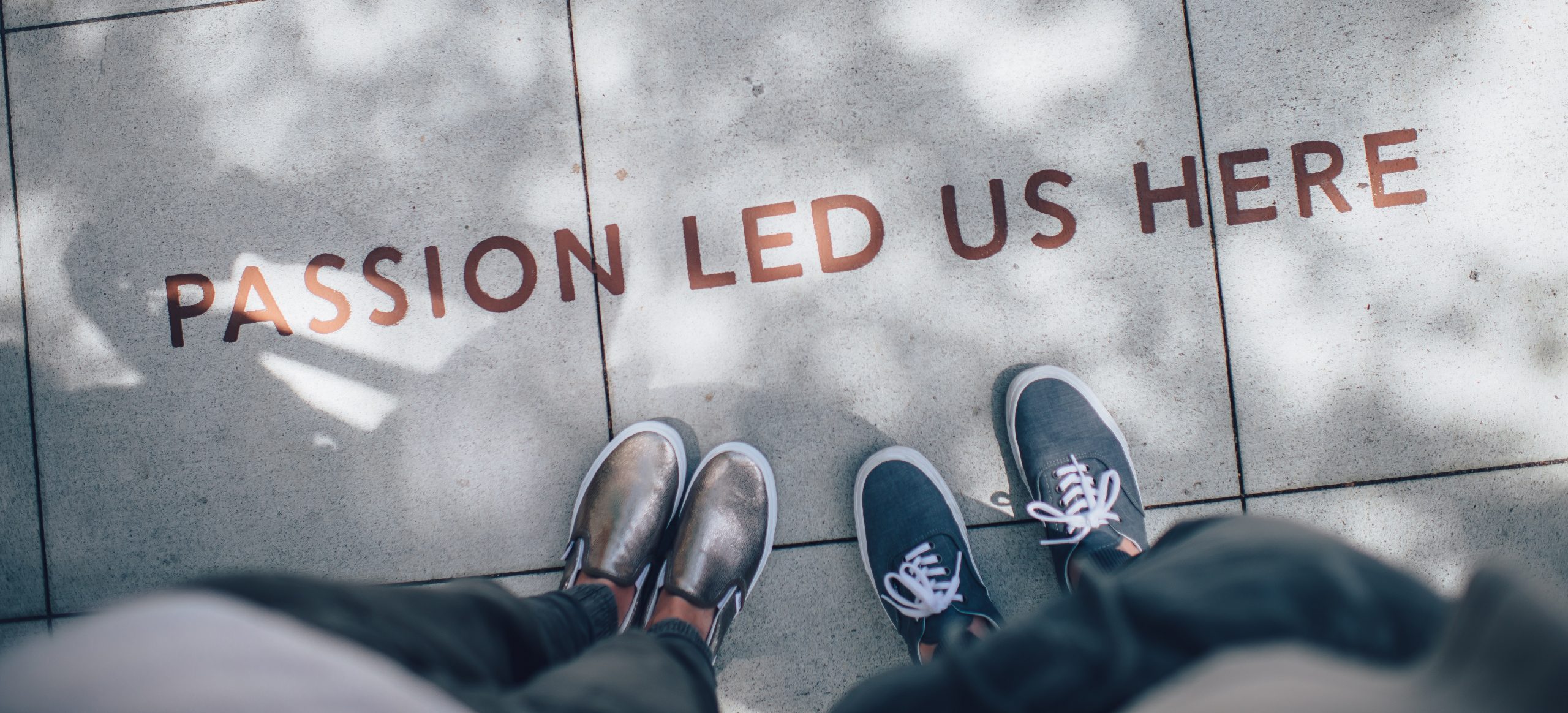Panel Discussion: Sustainability in Our Industry
For the last lecture of ENV1101, we are organising an online Zoom panel discussion themed “Sustainability in Our Industries“. We have invited industry sustainability practitioners from 4 different organisations and industries to share about their work in transforming their respective industries through developing and implementing more responsible business practices.
The event will take place on:
Date: 11 November 2021 (Thursday)
Time: 8am – 10am
Venue: On Zoom. Register your interest here by 9 November (Tuesday).
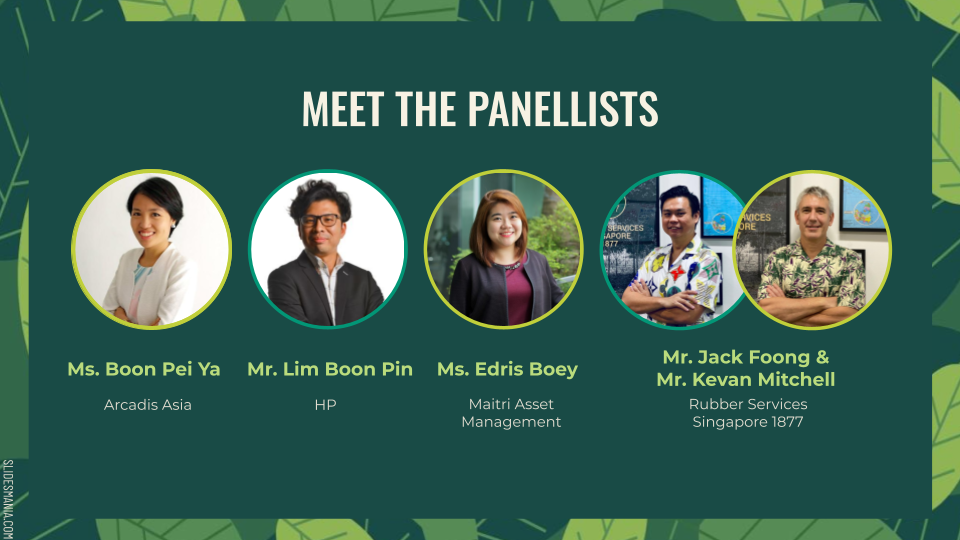
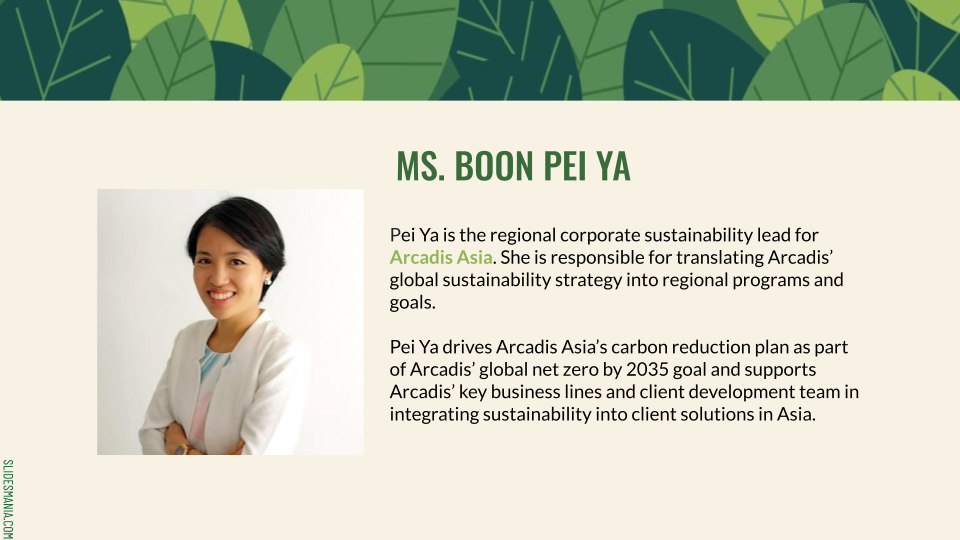
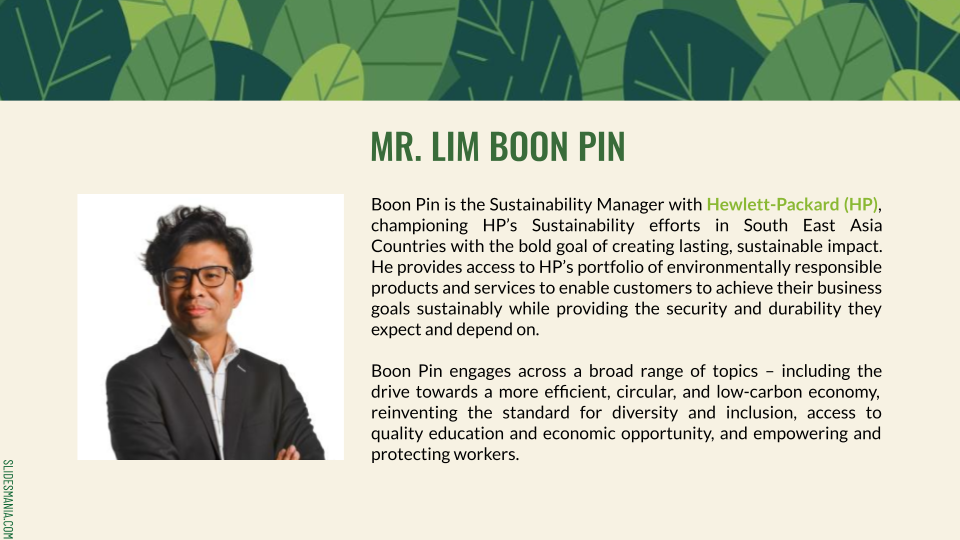
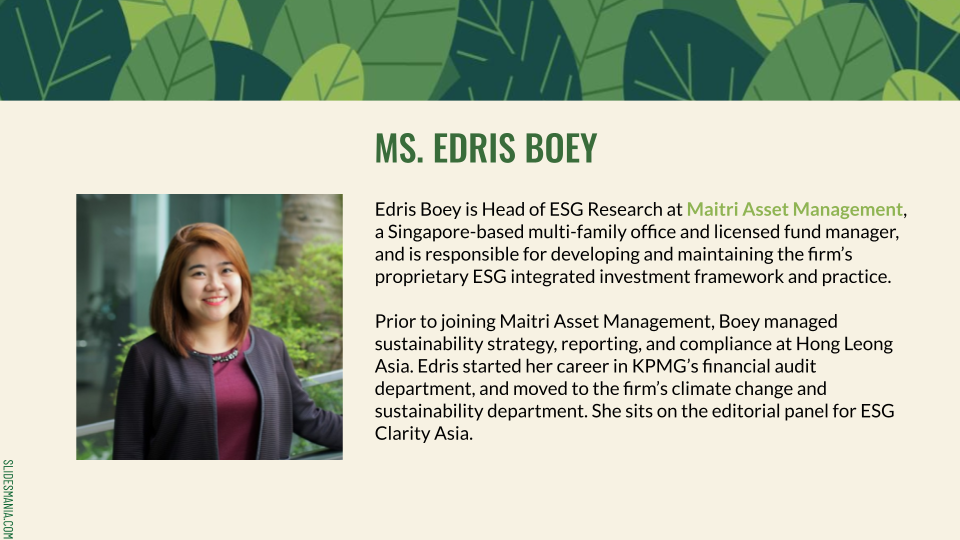
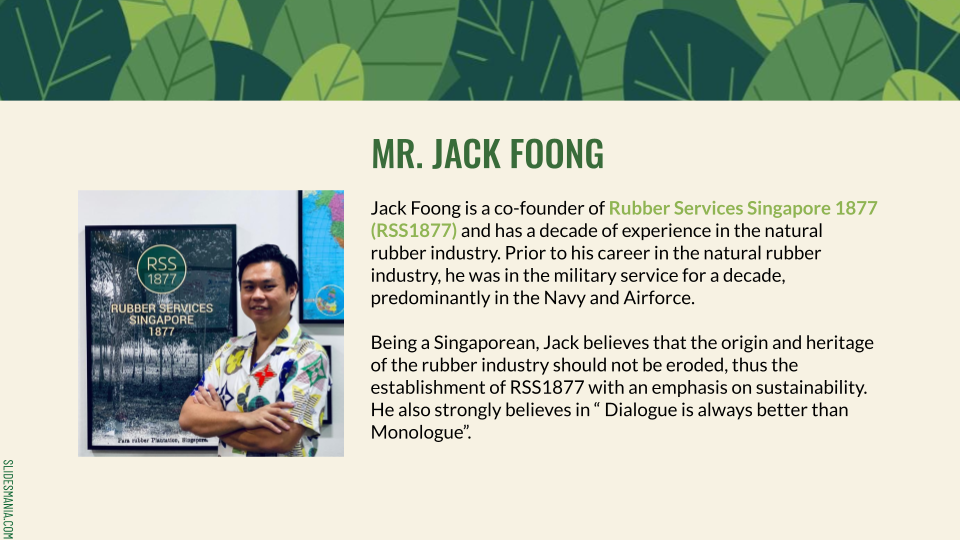
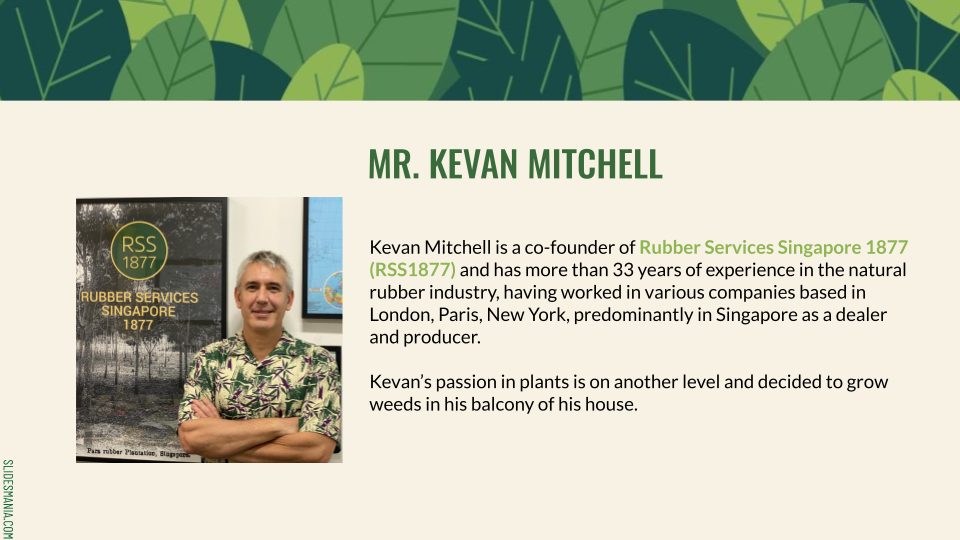
The session will start off with a 10-min sharing from each panelist, followed by a 35-minute panel discussion at the end. There will be a 5-min break in between. To encourage candid sharing, the session will not be recorded.
Find out more about the work that our panelists are engaged in:
- Arcadis’s sustainability website.
- Arcadis Annual Integrated Report 2020. (p. 27, 31-32, 40-42). Please note that the section on sustainability section (p. 85-95) is outdated.
- (Optional) Arcadis’s 2021 Sustainability Day broadcast which talks about their sustainability ambition and how they plan to get there.
HP’s Sustainable Impact Strategy: Planet, People, Community
HP’s Sustainable Impact strategy is to create lasting, positive change for the planet, our people, and the communities where we live, work and do business in. Our customers are a key component of this strategy, as together with their support, we can address global environmental challenges, empower more people to thrive, and improve the vitality and resilience of our local communities.
Customers who purchase HP products and services help support a more efficient, circular, and low carbon economy.
- HP is driving toward a net zero carbon, fully regenerative economy.
- HP products increasingly contain closed loop and recycled plastic, backed by HP’s industry leading goal to use 30% postconsumer recycled plastic in our Print and Personal Systems products by 2025.
- Adding to that goal, HP aims to have 75% circularity for products and packaging by 2030.
Customers who purchase HP products and services help empower the people who bring HP products to market, both at work, at home, and in their communities.
- By purchasing HP products and services, customers help HP support supplier well-being and skills building.
- HP champions equal rights and human rights across our value chain to ensure supply chain workers are treated fairly, work in safe conditions and have freely chosen employment.
- In collaboration with NGO partners and other external organizations, we provide programs designed to help suppliers continually improve along their sustainability journey. During 2020, we reached 46,000 workers through our capability-building programs.
- HP believes that better innovation comes from diverse, empowered people and teams, and as such, is reinventing the standard for diversity and inclusion throughout our company and across our entire ecosystem of suppliers and partners.
- HP has been recognized by numerous organizations for its leadership in diversity and inclusion.
- HP’s Board of Directors is the most diverse of any U.S. technology company.
- HP has announced new, ambitious goals to achieve 50/50 gender equality in HP leadership and to have women represent greater than 30% of our workforce in technical and engineering roles by 2030.
Customers who purchase HP products and services help unlock educational and economic opportunities through technology and skills training that drive resiliency in our communities.
- Whether aiming to provide better learning outcomes for 150 million people by 2030, partnering with Girl Rising to educate women and girls, or providing emergency connectivity to people facing natural disasters, the impact that HP and HP customers have is both localized and globalized.
- The HP Life program gives customers a way to help the people in our communities gain core business and IT skills through 32+ free courses in 7 languages. In 2020, 155,000 new users enrolled in HP LIFE, up more than 210% from the prior year. This brings the total of new HP LIFE users to nearly 950,000 from 2012 to 2020. (370,000 users have enrolled in HP LIFE courses since 2016)
- Also, in collaboration with NGO partners and other external organizations, we provide programs designed to help suppliers continually improve along their sustainability journey. During 2020, we reached 46,000 workers through our capability-building programs.
-
-
Watch:
- Standing for a new era of opportunity | Sustainable Impact | HP
- Delivering on Our Purpose | Sustainable Impact | HP
Read:
Rubber Services Singapore 1877 (RSS1877) was established on 25th June 2021 in the midst of the pandemic.
How did the name of the company come about?
“RSS” is a grade of natural rubber (ribbed smoked sheet).
“1877” is the year that the rubber seeds were “acquired” from Brazil by Henry Wickham (there is a book called “The thief at the end of the world” based on his exploits) and sent to Singapore via Kew Gardens. The seeds came to Singapore’s Botanic Gardens, now a world heritage site. This marked the very start of the SE Asian rubber industry. Natural Rubber was a major contributor to Singapore’s rapid growth.
RSS1877 is a majority shareholder of the Indonesian rubber factory PT. Anugrah Sibolga Lestari.
Our aim is to target realistic sustainability goals. In terms of product distribution, we provide a bespoke service to a small network of partners.
PT. Anugrah Sibolga Lestari:
- Rubber processing unit, with 105 colleagues.
- Established 2004.
- Location is Sibolga on the West coast of Sumatra.
- We ship our cargo out of the port of Belawan in Medan on the East coast of Sumatra.
Sustainability in Indonesia, Thailand and Malaysia
There are very few “plantations” left in the traditional BIG three producing countries. The raw material supply (as in much of SE Asia and Africa) comes from small holder farmers.
Thus, if you about talk sustainability, it has to start with the farmer.
- Malaysia imports the majority of its raw material from Africa, Burma, Vietnam and the Philippines. Technically, Malaysia Rubber, is not from Malaysia.
- Thailand protects the farmers by banning ANY type of natural rubber import into the country.
- Indonesia has a lot of farmers living on the edge of poverty.
We have embarked a system of mapping our suppliers as resource mapping has become a fundamental requirement for the natural rubber industry.
A tool co-created by Michelin and Continental tires, it is designed to map sustainability activities across the natural rubber industry by assessing practices and risks relating to human rights, environmental protection, and social development.
We are actually speaking to the smallholders to find out what their situation is. To start, we plan to educating them on good farming practices.
Read more at the RSS1877 website.
All current BES students and faculty are welcome. Please register your interest here by 9 November (Tuesday). You will receive a confirmation email with further event details within 3 working days.
Featured image: Photo by Ian Schneider on Unsplash

